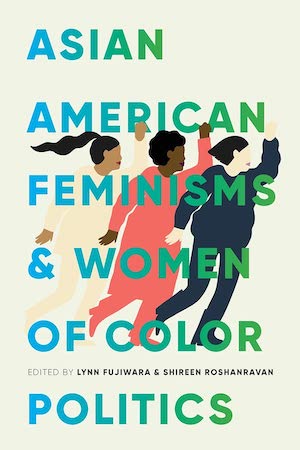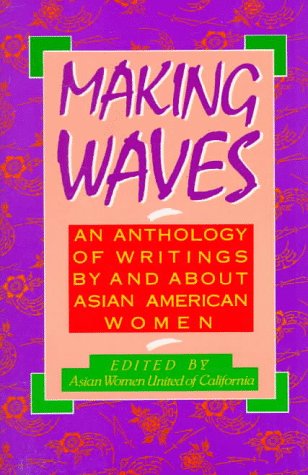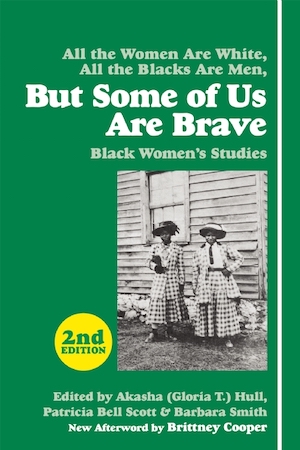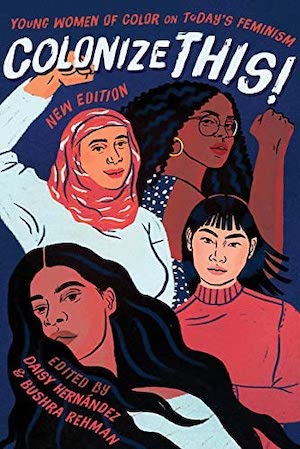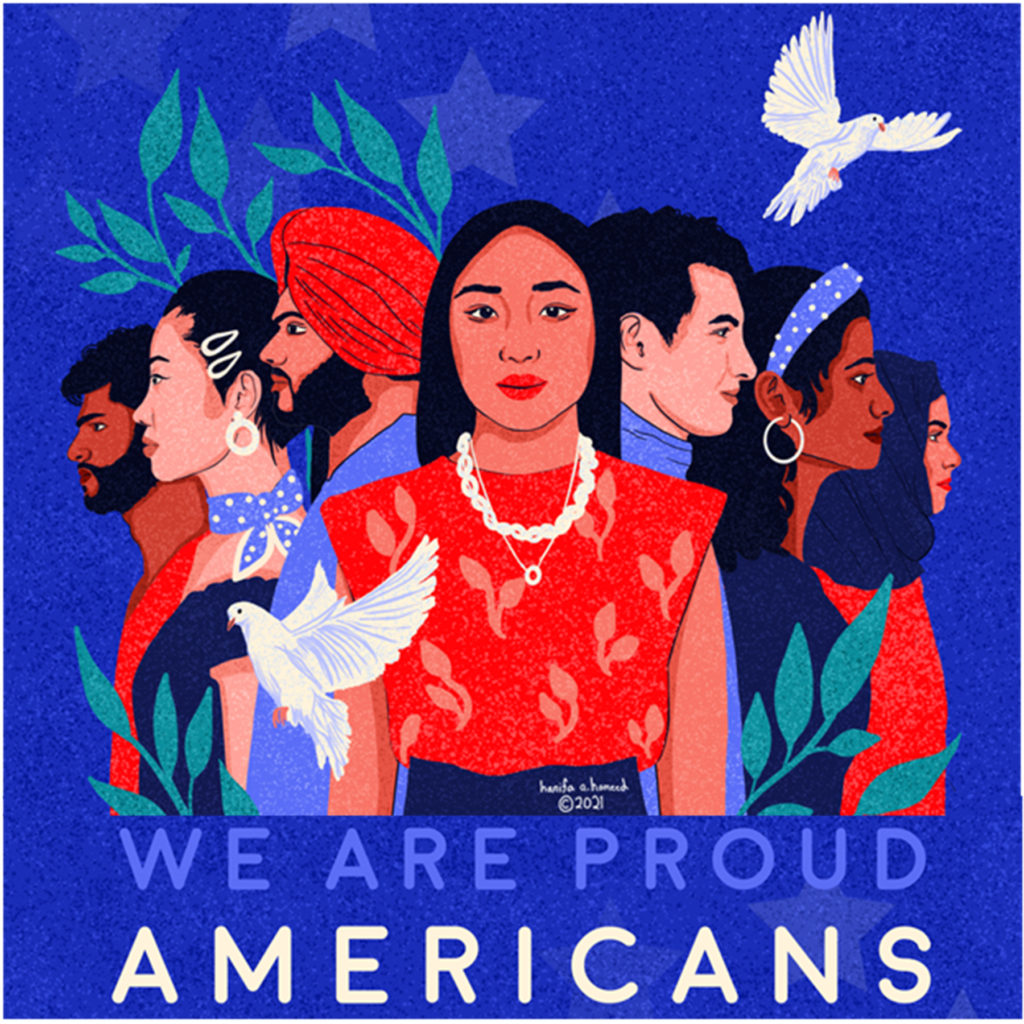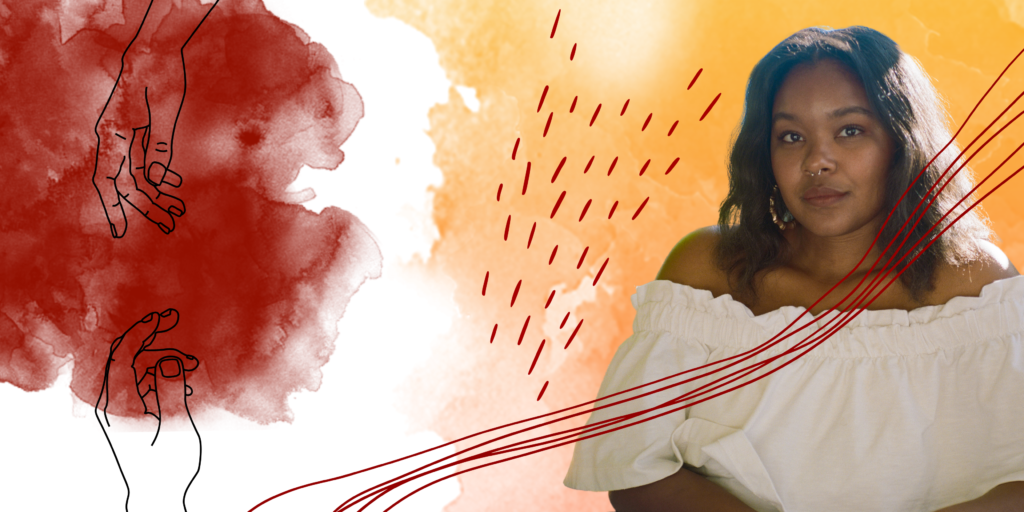An exploration of forms—confession, manifesto, and anthology
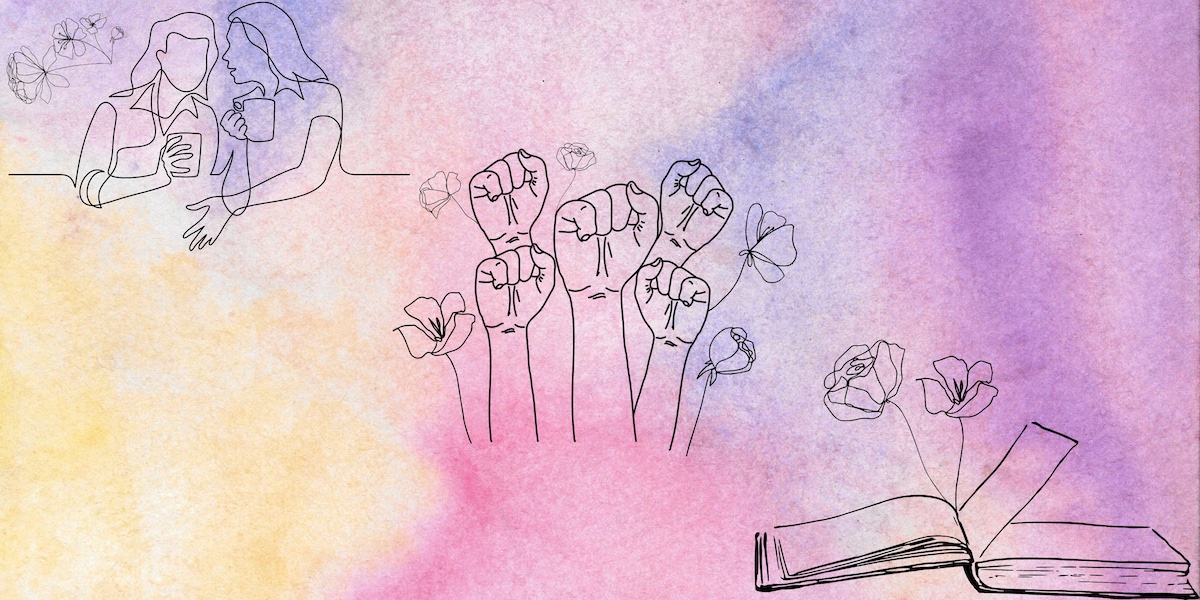
July 8, 2022
Confession
Can I share a secret with you? I’m terrified to write about solidarity. How can I write about solidarity when I can’t say that I have consciously practiced it for long and when I still do it imperfectly? When I’ve had to unlearn my own racism, homo/transphobia, and internalized white supremacy? How do I write about solidarity when I’m more inclined to align myself with these identities that I carry—Korean, Asian American, queer, feminist—and to drift toward the ease and comfort of staying in these lanes. After all, it is these identities that ushered me into organizing. But as Third World feminists and Black feminists have emphasized, we have to organize around obliterating the oppressions that force us to carry these identities in the first place.
Conversations and expressions of solidarity came to the forefront in 2020, during the summer months of the Black Lives Matter marches and the first stretch of the COVID-19 pandemic. People hung signs on their balconies; Black and Asian organizers and activists staged talks on Instagram Live; businesses gestured toward a utopia of solidarity. But the question remained: what did solidarity in practice mean for feminists of color and namely, Black and Asian feminists?
And as writers, what does writing solidarity look like?
It was only a few years ago that I began to think of myself as a writer, even though I had meticulously kept confessional blogs on Xanga, and then Tumblr starting in middle school. As a younger person, I felt a strong pull to divulge parts of myself in the hopes of being understood and to find connection with others online. I didn’t yet feel the pressure to project either perfection or competence, as I did when I graduated college and had to find a job. The very thing that I now shy away from, the way that the internet now catalogs your every exploit for the world to Google, is the exact thing I craved as a younger person—an internet community built upon confessing the truth of my emotions, my experiences without a façade. In reading about each other online, we were invested in each other’s lives, further emboldened to be vulnerable. In a sense, even those Myspace surveys that listed forty questions—including when’s the last time you texted your ex (>:P) or shared the last text you sent?—were confessions about my life.
As I thought through the question of what writing solidarity looks like, I found myself at a standstill. Apart from generalized statements or academic treatises on the subject, it was difficult to find writing that encompassed overt gestures toward solidarity. But then, I reframed my question—rather than trying to find the perfect example of solidarity in literature, what forms of literature foster and evoke solidarity? I gravitated toward various forms of writing that feminists have sought out in the past.
Building consciousness as feminists often begins with a confession in the form of a question. In Mitsuye Yamada’s “Invisibility is an Unnatural Disaster,” she writes: “Perhaps it is important to ask ourselves why it took so long [to admit to ourselves that we were oppressed]? ”A cursory read of notable feminists that trace their consciousness pose questions like, “What do we learn not to notice?” (Sara Ahmed).
The confession is a form with which to interrogate one’s own identity, gender, oppression, and privilege in the world—to speak into existence the questions that come up over and over again, especially the ones that threaten to disrupt the peace built on the status quo. The first to confess, to tell a secret, to share the shame, can change the relationship, the room, the community that one is a part of.
“But for every real word spoken, for every attempt I had ever made to speak those truths for which I am still seeking, I had made contact with other women while we examined the words to fit a world in which we all believed, bridging our differences.” —Audre Lorde
Manifesto
One of the biggest hindrances to feminist writing is the pressure to make relatable and universal what is deeply personal. “Feminist theory taught me that the universal is what needs to be exploded,” writes Sara Ahmed. As women and nonbinary people, we have had it instilled since birth to hide rage, to be quiet, to prioritize politeness over justice. The feminist manifestos that I have read say out loud the things that you may think, especially in moments of rage, when you are let down by society for their unwillingness to act or understand.
Over the past year in New York City, inhabiting public space and taking the subway has provoked a lot of fear and anger. The memory of recent shootings and people being pushed onto the subway tracks combine with the general unpredictability of being in a public space as an Asian person or someone from any other targeted identity. I’ve always felt safe on the 7 train. The predictability of the way it filters people from across Queens, from the young professionals in Long Island City to Latinx folks getting off en masse at Junction Blvd., and then Asians, as I get off with everyone on the last stop at Main Street, Flushing.
Recently, while my partner and I were on the 7 train, a young Latino man who was singing with his guitar passed us and said, “Gross.” I pretended that I didn’t hear him, my go-to non-response in a public place when I don’t know how a person might react. I felt a muted anger that I quickly wanted to extinguish. I didn’t want to give the incident any power over me and my day. Where do the feelings that arise (Is it anger? Shame? Sadness?) go when there isn’t an obvious place to put them? How might we avoid keeping them inside ourselves? How to express them in a way that resonates with others who have had similar experiences?
Every time I read the Queer Nation Manifesto, whether it’s when I’m looking up the history of ACT UP or finding inspiration from activism during the ‘80s and ‘90s, I am reminded of how powerful it is to discard respectability. Queer Nation was a decentralized direct action group founded in 1990 in New York City that took up space in public and attempted to destigmatize queerness through kiss-ins in shopping malls and disseminating pamphlets like this manifesto.
“And we are an army of lovers because it is we who know what love is. Desire and lust, too. We invented them. We come out of the closet, face the rejection of society, face firing squads, just to love each other! Every time we fuck, we win.” —Queer Nation Manifesto, 1990
With subtitles like I HATE STRAIGHTS, RULES OF CONDUCT FOR STRAIGHT PEOPLE, the manifesto provokes. I imagine straight people reading it and being shocked that they could be hated for their sexuality. Dare I say, most queer people have had the thought, I HATE STRAIGHTS, when faced with stares, looks, outright slurs, violence, and the deaths of those they loved. The manifesto transforms the hate queers receive and turns it around, making public the manifestation of everyday oppression that they face.
Manifestos are also an important vehicle for internal alignment within a group, which is essential for broader solidarity-building. In the Queer Nation Manifesto, the call for internal solidarity among queer people is an open invitation for others to join. The Combahee River Collective’s “A Black Feminist Statement,” which is more academic in nature, begins with an acknowledgement of who it is that is writing. “We are a collective of Black feminists who have been meeting together since 1974.” It also captures the specific perspective of centering Black feminist politics and the collective’s experiences organizing within feminist and Black spaces.
“In the process of consciousness-raising, actually life-sharing, we began to recognize the commonality of our experiences, from that sharing and growing consciousness, to build a politics that will change our lives and inevitably end our oppression.” —Black Feminist Statement, 1977
Anthology
“The voice recurs in me: Who am I, a poor Chicanita from the sticks, to think I could write? How hard it is for us to think we can choose to become writers, much less feel and believe that we can. What have we to contribute, to give? Our own expectations condition us. Does not our class, our culture as well as the white man tell us writing is not for women such as us.” —Gloria Anzaldúa, “Speaking in Tongues”
When I think of writing feminist solidarity, my mind immediately goes to the anthology, This Bridge Called My Back: Writings by Radical Women of Color. Published in 1981, This Bridge is now widely considered part of a canon among feminist texts. Edited by Cherríe Moraga and Gloria Anzaldúa, it features poetry, diary entries, personal essays, and academic work by feminists of color, like Nellie Wong, Merle Woo, and Genny Lim, who were a part of the Unbound Feet Collective, a Chinese American feminist writing and performance collective. An entire section titled, “Speaking in Tongues” addresses the “Third World Woman Writer.” It opens with a photograph from Theresa Hak Kyung Cha’s 1975 performance called Aveugle Voix (Blind Voice).
The book functions like a roadmap in that it shows, actively, how these writers are striving to practice solidarity. This Bridge includes “A Letter to Third World Women Writers” from Gloria Anzaldúa that starts, “Dear mujeres de color, companions in writing.” Anzaldúa meditates on the importance of writing as a feminist, what barriers exist to this pursuit, and why she keeps going. She also utilizes speculative writing in the letter, invoking the various communities that she aims to be in solidarity with. This imaginative portion feels intimate—we are moved to conjure images of the women she is citing throughout the piece:
Black woman huddles over a desk…Chicana fanning away mosquitoes… Indian woman walking to school or work lamenting the lack of time to weave writing into your life. Asian American, lesbian, single mother tugged in all directions by children, lover, or ex-husband, and the writing.
As part of the letter, Anzaldúa draws in the words of other feminist writers of color. Her citation practice serves as a form of solidarity work—a deliberate way to invoke the voices that the writer wants to uplift. “Citation is feminist memory,” Sara Ahmed writes. “Citation is how we acknowledge our debt to those who came before; those who helped us find our way when the way was obscured because we deviated from the paths we were told to follow.” In this way, citation in This Bridge mirrors the work of the anthology.
Poet and activist Nellie Wong’s “In Search of the Self as Hero” is another letter included in the anthology. In it, she addresses herself:
You talk of children and yet you have none. You talk of writing and leaving a part of yourselves to daughters and sons, their daughters and sons, so they will discover for themselves the heart and minds of Asian Americans, particularly the women who are struggling in this fight for freedom… You want to be a part of this legacy and so you write and write, questioning and exploring, not knowing if what you write will become a part of America’s freedom song, not knowing if there is a rainbow.
Both Wong and Anzaldúa’s letters move beyond self-expression. They attempt to connect lived experience to larger systems, to think critically about their role in the legacy they wish to leave behind.
I may never stop asking myself how solidarity takes shape as I write. The confession, the manifesto, and the anthology are scripts and guides to experiment with, not ends in themselves. In closing, I leave you with a handful of the feminist of color anthologies that I’ve picked up and learned from along the way:
